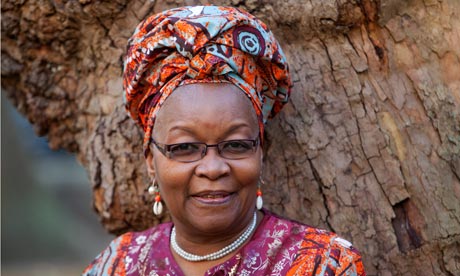A new British legal rights group will this week kick off a global campaign to decriminalise homosexuality in scores of countries across the world when it embarks on a first test case in the courts of Belize.
The Human Dignity Trust (HDT), which launched its campaign in London on Thursday, is targeting the 80-odd states where consensual sexual activity between adults of the same gender is outlawed. More than half are Commonwealth countries which inherited their regulations from British colonial rule. In some like Uganda, Kenya, Cameroon and Ghana the laws are seen by some as justification for violent attacks on gay and lesbian people.
Lord Goldsmith, the former attorney general, will be among the team of lawyers fighting to overturn section 53 of Belize's criminal code, which enacts that: "Every person who has carnal intercourse against the order of nature with any person or animal shall be liable to imprisonment for 10 years."
The hearing, scheduled to begin on 5 December, has been brought by the gay Belizean activist Caleb Orozco. It is shaping up to be a constitutional legal clash with international political dimensions.
Belize's evangelical, Anglican and Catholic churches have united to oppose the application. They are expected to set out their objections in a pre-hearing review on Friday and seek to introduce evidence that homosexuality can be "cured".
In a joint statement earlier this summer, the churches in Belize declared: "In every country that has granted a new 'right' to homosexual behaviour, activists have promoted and steadily expanded this 'right' to trump universally recognised rights to religious freedom and expression."
Announcing that they have also retained a high-powered legal team, the Catholic bishop Dorick Wright, the Anglican bishop Philip Wright and the evangelical Rev Eugene Crawford said: "The people of Belize will not surrender our constitution, our moral foundations, and our way of life to predatory foreign interests."
The courtroom battle in Belize is the first in the HDT campaign. Challenges to homophobic laws in Northern Cyprus and Jamaica, where there are so-called "anti-sodomy laws", should be lodged before Christmas. Cases in other states will follow in the new year.
Criminalising homosexuality is illegal under international law, according to Jonathan Cooper, a human rights barrister who is the trust's chief executive. Among the legal authorities establishing that precedent is a 1994 ruling by the UN's human rights committee based on a case in Australia.
"But more than 80 countries, 42 of which are in the Commonwealth, have laws that criminalise homosexuality," he said. "Our initiative has nothing to do with gay marriage; human rights law has nothing to say on gay marriage.
"The laws that criminalise homosexuality in most of the Commonwealth countries are the legacy of British colonial rule. The French, Dutch and Spanish didn't leave [such an inheritance]. By the time the UK decriminalised, most of those states were independent.
"We will work through local lawyers and support them in bringing challenges. We will make sure they get all the resources they need. Gay people could be killed if we mishandle these cases."
Goldsmith and Godfrey Smith, a onetime attorney-general of Belize, are acting as leading counsel in the first challenge. Some of the cases could end up in British courts if they are appealed up to the privy council in London, which works alongside the supreme court, and still acts as the final appellate court for many Commonwealth states.
"We hope there will be a domino effect eventually," Cooper added, "with countries recognising [that they will lose the test cases] and saying 'Why don't we just decriminalise?'"
The Foreign Office has also become more active in combating laws that criminalise homosexuality. In an address during the Commonwealth summit in Australia last month, the foreign secretary, William Hague, said: "The UK would like to see the Commonwealth do more to promote the rights of its lesbian, gay, bisexual and transgender citizens. It is wrong in our view that these groups continue to suffer persecution, violence and discrimination within the Commonwealth and that many members still have laws criminalising homosexuality."
In its founding statement the HDT says: "Criminalisation causes misery to all of those affected, compromising people's identity through illegality. It also reduces human beings to their sexual acts.
"We hope to bring approximately five to 10 cases globally each year. Where necessary we will fund cases. In the event of a prosecution we can assist lawyers in preparing a defence challenging those laws. If appropriate, we may bring cases in our own name."
The trust is chaired by Tim Otty QC, a human rights specialist. Its patrons include the Liberal Democrat Lord Lester, Lord Woolf, the former lord chief justice, Sir Shridath Ramphal, the former secretary general of the Commonwealth, Soli J Sorabjee, the former attorney general for India, and Arthur Chaskalson, the former chief justice of South Africa.

 Previous Article
Previous Article
Share your views...
0 Respones to "Global campaign to decriminalise homosexuality to kick off in Belize court | World news on day true story"
Posting Komentar